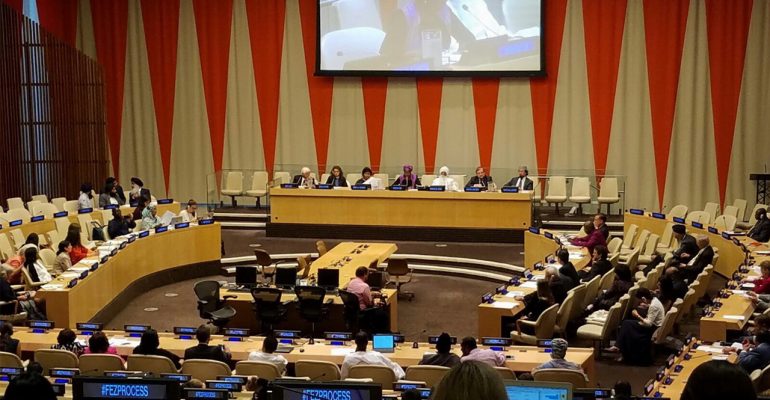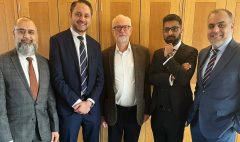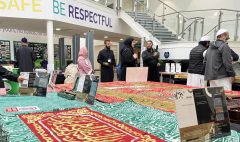United Nations Secretary-General launches first action plan for religious leaders to prevent incitement to violence
July 21, 2017 2023-07-19 12:36United Nations Secretary-General launches first action plan for religious leaders to prevent incitement to violence

United Nations Secretary-General launches first action plan for religious leaders to prevent incitement to violence
The first ever action plan specifically designed to enable religious leaders to prevent incitement to violence – the Plan of Action for Religious Leaders and Actors to Prevent Incitement to Violence that Could Lead to Atrocity Crimes – was launched on 14 July by Secretary-General António Guterres at a meeting at United Nations Headquarters in New York.
The Plan of Action was developed over two years of intensive consultations at the global and regional levels organized by the United Nations Office on Genocide Prevention and the Responsibility to Protect, with the support of the International Dialogue Centre (KAICIID), the World Council of Churches (WCC), and the Network for Religious and Traditional Peacemakers.
A total of 232 religious leaders and actors from 77 countries took part in the consultations. Participants included Buddhists, Christians, Hindus, Jews, Muslims and Sikhs from different groups and denominations, as well as representatives from various religious minorities, including Baha’i, Candomblé, Kakai, Yazidi and humanists. At least 30 percent of participants at all meetings were women.
The Action Plan was developed in response to an alarming spike in recent years in hate speech and incitement to violence against individuals or communities, based on their identity. Incitement to violence, in public discourse and the media, is both a common warning sign and a precursor of atrocity crimes. The Action Plan is the first document to focus on the role of religious leaders and actors in preventing incitement to violence that could lead to atrocity crimes and the first to develop context specific regional strategies with this objective.
Implementation of the Plan of Action will contribute to the prevention of atrocity crimes, especially in areas affected by religious and sectarian tensions and violence and enhance the respect, protection and promotion of human rights, including the rights to freedom of opinion and expression, freedom of religion or belief and peaceful assembly.
António Guterres, Secretary-General of the United Nations said: “All religions teach respect for life, and recognize human beings as fundamentally equal. These principles summon us to show respect for all human beings, even those with whom we might profoundly disagree or whose cultures might seem alien. I urge the widest possible dissemination and implementation of this Plan of Action. It can help to save lives, reduce suffering, and realize our shared vision of peaceful, inclusive and just societies in which diversity is valued and the rights of all individuals are protected.”
Adama Dieng, United Nations Special Adviser on the Prevention of Genocide said: “States are primarily responsible for protecting their populations from atrocity crimes, as well as incitement to violence. But religious leaders can be particularly influential here, as they can influence the behaviour of those who follow them and share their beliefs. Since religion has repeatedly been misused to justify incitement to violence, it is vital that religious leaders from all faiths show leadership in this matter.”
At the launch meeting, religious leaders and actors, the United Nations, Member States, and civil society will begin discussing strategies for the implementation of the Plan of Action and the coordination between religious leaders and implementing agencies. Important next steps include the dissemination of the Action Plan among Member States, relevant UN agencies and other stakeholders.
Read the Plan of Action here.
Source: The World Council of Churches








